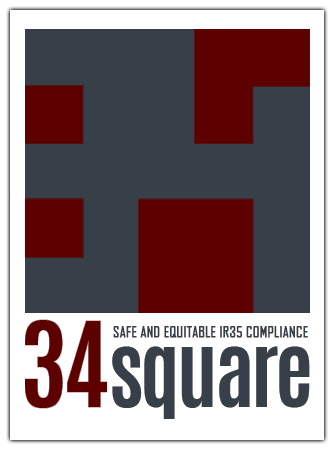IR35 STATUS DETERMINATION: REALLY WHAT IS REASONABLE CARE?

Let’s say you’re about to go up in a plane and jump out at 10,000 feet. Or go scuba diving deep down in the ocean. Both endeavours require considerable attention to detail in terms of safety measures and precautions. Reasonable care must surely be taken to ensure that the individual and the equipment are fit for purpose. Imagine if, in advance of such a pursuit:
- You are presented with a questionnaire to complete.
- That questionnaire includes subjective, non-binary questions that imply you are being given a score out of ten.
- Your answers are loaded into an assessment tool to analyse your status.
- The outcome of some hidden, mysterious algorithms determines whether or not you proceed.
Would you feel comfortable? What if you’re also aware that there are over a hundred variations of these assessment tools, and that the conclusion you will be presented with could be different from one tool to the next? Frankly, that would give me cause for concern.
What actually happens is that there are a set of mostly binary checks that need to occur, and you need to score ten out of ten in order to proceed. The qualification criteria are known.
HMRC has decreed that clients must take reasonable care in determining IR35 status, and that a failure to do so could render them liable for back tax, NI and even penalties. Conversely, if they can demonstrate reasonable care has been taken, they face no liabilities or penalties, even if the status determination is deemed to be wrong. They do not go as far as to state what represents reasonable care, albeit they provide guidance and examples in their Employment Status Manual pages.
IR35 status determinants are widely well-known. Their relative weights in terms of driving for or against an outside IR35 status are also well-known. It is therefore possible, as in the case of parachute jumping or scuba diving, to come up with a list of criteria that do not need to be assessed, that are pre-assessed and known to be safe for outside IR35, irrespective of any other factors. Then simply tick them off. Adopt them. If you can’t adopt one or more of them, then you cannot proceed with Outside IR35.
34square have designed a minimum such set of nine criteria and then an optional, configurable additional seven that will strengthen your status determination statement, albeit unnecessarily.
Surely making the effort to design and derive one’s working practices and engagement attributes to ensure they are in line with the regulations, represents a higher degree of reasonable care than simply picking one of a rapidly growing number of assessment tools, whilst knowing you might get a different answer from one to the next? Besides, entering answers to questions that you actually in any case have the power to answer in more than one way by adjusting your working practices and engagement attributes, seems a little odd.
Don’t gamble with a mark out of ten from a randomly selected questionnaire. Design your working practices and engagement attributes to meet the criteria. Or better still, talk to 34square. We’ve already designed them for you. You can have them for free. And you can be sure your reasonable care obligation has been met, as a result of the over one thousand hours of research, legal advice and other expert consultation that underpins our model and your SDS from our platform.
If clients feel an assessment is still required to bolster their reasonable care case, 34square provides a detailed guide to help them navigate CEST in conjunction with our services, and to generate a legitimate outside IR35 verdict. As stated at the top of our home page, if your answers in HMRC's IR35 assessment tool, CEST, confirm an unfettered right of substitution, where the contractor would pay any substitute, then no matter how you answer any and all of the remaining questions, the verdict will be outside IR35. HMRC HAD to design it that way. A weight of case law precedent confirms an unfettered right of substitution, even if never used, can be and HAS been a sole determinant of outside IR35.
Some clients view right of substitution as a 'fright' of substitution, perhaps due to a misguided expectation that they will suddenly encounter strangers in place of their chosen resources and have no power to intervene. In reality, it’s a benefit for them, providing an assurance that contractual obligations can still be met, even if the main resource is unavoidably unavailable at a critical time. 34square enables contractor limited companies to punch above their weight should they need to, essentially being part of a much larger virtual consulting company. If they abuse it and/or compromise delivery, terminate the contract. Just as you would for any other shortcoming.
